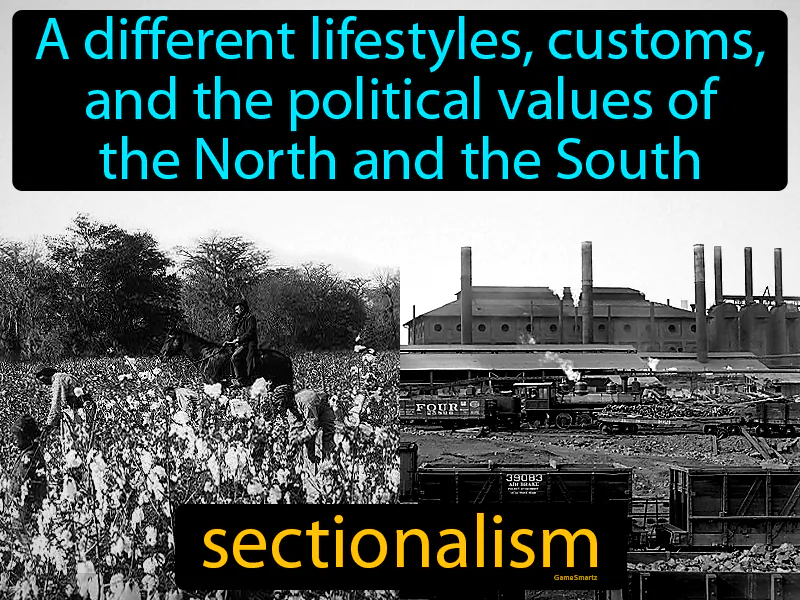Sectionalism
Sectionalism: Easy to understand
Sectionalism during the early 1800s was the growing division between the North and the South in the United States, based on their distinct lifestyles, customs, and political beliefs. This period saw the North focusing on industry and urban growth, while the South relied heavily on agriculture and slavery. These differences caused tensions over issues like tariffs and states' rights, and eventually contributed to the Civil War. Today, sectionalism still matters because it reminds us that regional differences can lead to misunderstandings or conflicts if not addressed with open communication. For example, someone living in a rural area might have different views on environmental policies compared to someone in a big city, but understanding each other's perspectives can lead to better compromises and unity.

Practice Version

Sectionalism: a different lifestyles, customs, and the political values of the North and the South. sectionalism. Sectionalism is when different regions of a country, like the North and the South in U.S. history, prioritize their own interests over the country's unity.